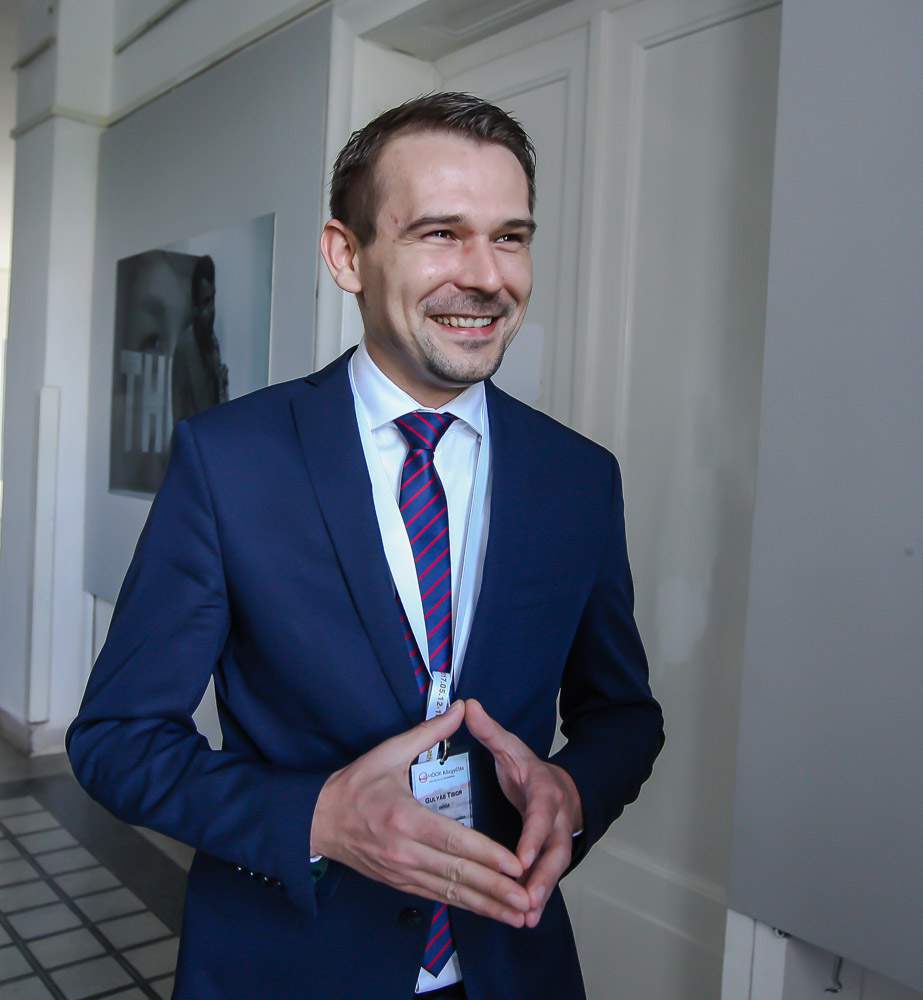Whoever represents university students in Hungary – Tibor Gulyás INTERVIEW

Change language:
Exclusive interview with president Tibor Gulyás, representative of all university students in Hungary.
Daily News Hungary: Mr. President, please, introduce your organization and tell us something about yourself
Gulyás: The HÖOK (National Union of Students in Hungary) is a representative organization named by the higher education law.
All the university students’ self-governments are members, in state, church and private institutions alike.
The organization is responsible for the representation of all the university students besides — or together with — the reconciliation of student governments. I have been in office as president since 2015. I was reelected in 2016, so I can lead this organization today. I studied political sciences at University of Pécs, where I also graduated from. Currently, I am a MBA student at Budapest University of Technology and Economics.
DNH: What did you achieve this year and what important changes occurred in the lives of the students?
Gulyás: I will try to pick some fields. First, as regards the past year, I would highlight the “National Dormitory Development Strategy,” which already has visible results in its zeroth phase. While we were not afraid to voice our doubts during the process, I am happy to have it, because no such strategy was introduced before, and I look forward to the future with hope.
We are having debates about the revision of the establishments in Budapest in order to make investments serve higher education better after the cancellation of the application for the Olympics.
The second point I would like to focus on is the group of changes in the system of the DiákHitel (governmental student loan). HÖOK organised a remarkable amount of talks with the leaders of DiákHitel in the last one and a half years in order to develop a new framework for the loan construction that helps university students. We were happy to see them in practice.
The third point that needs to be highlighted is the Mentorprogram, for which we have achieved a higher support in two phases.
Thanks to the increase of its popularity, more than 3000 students in need are helped by more than 300 peers this year.
We are constantly developing the training elements of the program, and this semester started out to be very promising.
I would like to emphasize our #Jövőkép Program as well, about which we are still speaking a lot. We went on a national tour last spring and visited Hungarian institutions and Hungarian institutions beyond the border as well, to learn about the problems emphasized by the students. #Jövőkép Program is the conclusion of this tour. We summarize the issues of higher education in 17+1 fields and try to find answers. We will ask for solutions at the upcoming meetings with the government (www.jovokep.hook.hu).
DNH: Which one of your international connections would you highlight? What is your relation like to other student representative organizations around the world?
Gulyás: Naturally, HÖOK is a member of the European Student’s Union (ESU), but we are proud of being the initiators of the establishment of a students’ V4 alliance. We are currently working on establishing an international association — a legal entity.







